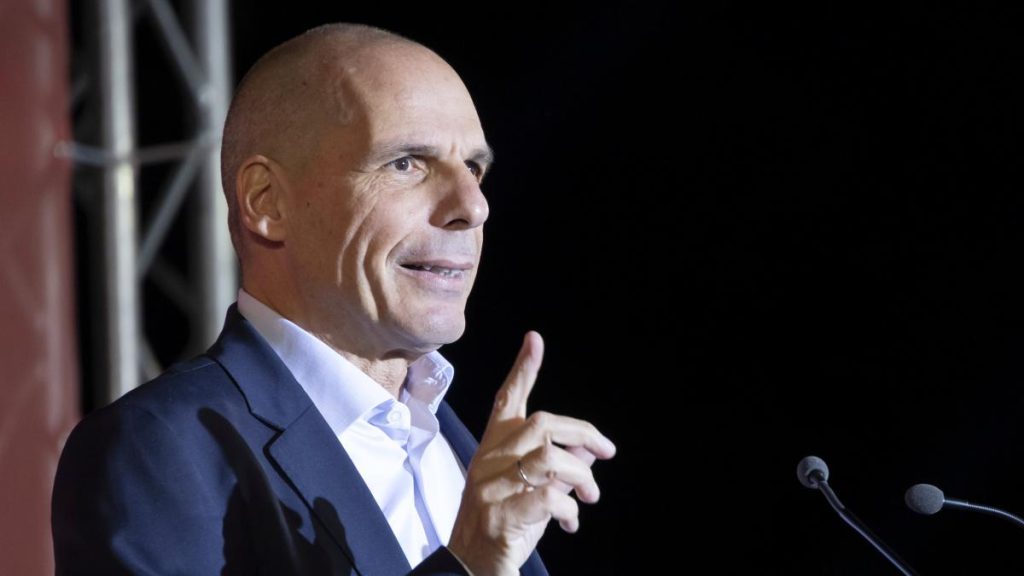German authorities have imposed an entry ban on former Greek Finance Minister Yanis Varoufakis in connection with the controversial “Palestine Congress” in Berlin, in an effort to prevent “antisemitic and anti-Israel propaganda” at the event. Varoufakis, co-founder of the left-wing pan-European party Diem25, alleged that the German Interior Ministry issued a “ban on political activities” against him, including participating in online events. However, security sources clarified that it was an entry ban targeting Varoufakis. Berlin’s Senator for the Interior, Iris Spranger, defended the decision to cancel the event and maintain the ban, stating that the congress was a platform for anti-Semitic and anti-Israel groups rather than a venue for critical discussions on Israeli politics.
Following the dissolution of the “Palestine Congress” on Friday in Berlin, demonstrators attacked the police on Sunday evening near the Federal Chancellery. Approximately 200 protesters gathered, with one individual using prohibited slogans in his speech leading to his arrest, prompting the crowd to attempt to free him and subsequently spitting at and attacking officers. Police responded with pepper spray, resulting in injuries to both officers and demonstrators, with eight protesters being apprehended. The controversial event was abruptly terminated by the Berlin police shortly after it began due to a speaker with a political ban being connected. The police subsequently banned the event for Saturday and Sunday as well.
The entry ban on Varoufakis and the cancellation of the “Palestine Congress” are part of efforts by German authorities to combat anti-Semitic and anti-Israel propaganda, with a focus on preventing such ideologies from being promoted at public events. The decision to impose these bans has sparked debate and criticism, particularly from Varoufakis and his supporters who view it as an infringement on his freedom of expression and political activities. The incident has also highlighted the tensions and divisions surrounding issues related to Israel and Palestine, as well as the challenges in managing public events that may incite tensions or violence.
The actions taken by German authorities in response to the “Palestine Congress” reflect broader concerns about the rise of anti-Semitic and anti-Israel sentiments in Europe and the need to confront and address these ideologies. The decision to issue an entry ban against Varoufakis and to cancel the event underscores the government’s commitment to preventing the dissemination of hateful rhetoric and ideologies that target specific communities. However, the incident has also raised questions about the limits of freedom of expression and the balance between promoting open debate and preventing the spread of hate speech and discrimination in public forums.
The clashes between demonstrators and police following the cancellation of the “Palestine Congress” highlight the challenges faced by law enforcement in maintaining public order and ensuring the safety of all individuals involved in such events. The use of pepper spray and arrests during the protests underscore the potential for tensions to escalate rapidly in situations where conflicting ideologies and beliefs are at play. The aftermath of the congress and the demonstrations serve as a reminder of the ongoing complexities and controversies surrounding issues related to Israel and Palestine, and the importance of addressing these issues in a constructive and peaceful manner to prevent further violence and division.


